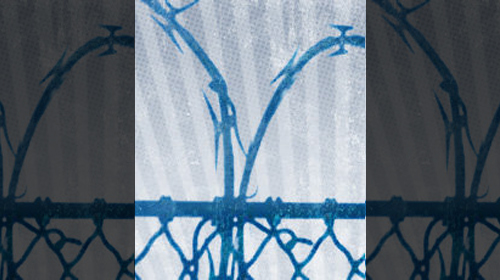
The Times-Picayune recently finished of the crisis in the Louisiana prison system. Louisiana has the highest rate of incarceration in the world, at enormous human and financial cost. In an eight-part series that later became the source of , the newspaper focused on both the political underpinnings and social consequences of incarcerating so many members of society.
The United States is the world's leading incarcerator, with an average of 730 inmates per 100,000 people. (Compare that with 62 in Afghanistan, 122 in China, and even 525 in Russia). But Louisiana's numbers are more than double the U.S. average: 1619 prisoners per 100,000 residents. One of every 86 adults in Louisiana is currently mired in the criminal justice system. Worse, in Louisiana people are more likely than anywhere else to receive sentences of life without parole, which means that more and more people are serving time from which they will never be released.
And for lots of reasons, Louisiana spends less per prisoner than any other state. The state is poor, and one way to cut expenditures is at the expense of the incarcerated. When the federal government ordered Louisiana to reduce prison overcrowding, the state turned to a system of private prisons involving both for-profit companies and local sheriffs, rather than revisiting the draconian sentencing laws that led to overcrowding in the first place. The result? Powerful lobbies in support of long prison terms, and incentives to reduce spending per inmate in order to achieve maximum profit.
The └¤░─├┼┐¬Ż▒Żß╣ű has been working to fix Louisiana's broken criminal justice system. We've forged an unlikely alliance with Burl Cain, the warden of Louisiana's largest and most famous prison, the Louisiana State Penitentiary at Angola, to reduce the number of nonviolent inmates. Warden Cain knows that prison isn't the place for people who have turned their lives around, or who are terminally ill and need medical care.
Together, we've achieved remarkable legislative successes in the past two years. In 2011 we sponsored a bill that became law (Act 253) allowing certain elderly prisoners convicted of nonviolent offenses the chance to earn parole even if their sentences didn't permit it. This year we sponsored additional legislation that will provide parole hearings for certain nonviolent, non-sex offenders who meet educational and behavior requirements (House Bill 543). This year's bill has cleared the Louisiana Legislature and awaits Governor Bobby Jindal, who has said he will sign it into law. We have plans to seek more reforms next year.
These are small steps. Louisiana needs to alter its climate and enact real sentencing reform so that it stops sending so many people to jails and prisons in the first place. The conversation has begun, and the └¤░─├┼┐¬Ż▒Żß╣ű has been at the forefront of changes. There's much more work to be done. If it can happen in Louisiana, the prison capital of the world, there's hope for other states as well.
Learn more about overincarceration: Sign up for breaking news alerts, , and .

